Story of organizational foundation strengthening for the Terra People Association, an Approved Specified Nonprofit Corporation
Increasing the number of "Terra People" to promote world peace - The construction of a new organization through a three-year strengthening of the organizational foundation
NPO Terra People Association

For 40 years, the Terra People Association has continued support for Asian countries and international exchanges. We heard about the three-year effort to strengthen the organizational foundation, from dialogue to deepen the understanding and cooperation between the board of directors and the secretariat, up to the construction of a new organization.
[Re-edited from contents published in "THE BIG ISSUE JAPAN" Edition No. 479 (issued on May 15, 2024)]
The trigger for the activities was interaction with foreign students
The aim is a "circular symbiotic society"
The “Terra People Association” is an Approved Specified Nonprofit Corporation based in Saga Prefecture that engages in international cooperation and international exchange projects. According to its secretary-general, Kiyokuni Iwanaga, it was established in 1983 by Takeo Koga, a karate expert who had experience studying abroad in France. The goal of its establishment was for everyone around the world to become "people who can feel the happiness of others as their own happiness = Terra (Earth) People".
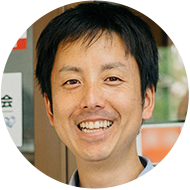
Kiyokuni Iwanaga
Secretary-General
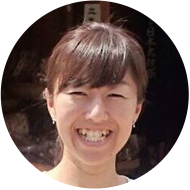
Nobue Fujise
Deputy Secretary-General
Nobue Fujise, the deputy secretary-general, explained the history of the activities. "It started from international exchange between Japan and South Korea and developed into activities allowing international students in Japan to experience homestays. Also, the founder Koga happened to meet a Thai social worker and went to visit rural areas in Thailand. After seeing the situation of children who could not afford tuition and school supplies and therefore could not receive a full education, the organization started support for scholarships. Later, he met with an ethnic minority leader in Myanmar and was deeply moved when he was told that, 'Rather than giving me food, I want you to teach me how to make it and how to cook. If not, we will become a people who just wait with our mouths open.'"
Since then, the organization has provided development support in the rural areas of Myanmar that includes efforts to improve livelihoods with training on circular agriculture, the construction of schools, electrification with small-scale hydroelectric power generation and water supply facilities. However, Fujise explains that, "We want to support people who are working to improve their community by themselves, so we ask the village to pay 25% of the school construction costs and to manage the water supply and electricity locally."
The organization has also implemented study tours two or three times a year, where staff and supporters visit the local area. Fujise says that, "The people who have donated to the school construction have been moved by the contact with the local people and said, 'Thank you for letting me support you.' The theme for our activities is 'creating a circular symbiotic society,' and I truly feel that we are learning from each other's lives and that the gratitude is also circulating."
In addition, the organization is making an effort to solve the local problems in the hilly and mountainous areas of Saga City where it is located, including the problems of the population drain causing a shortage of workers, houses being left vacant, and abandoned farmland. It has held camps inviting elementary school students from Saga and Fukuoka Prefectures, matched vacant houses with people who want to move in from outside the prefecture, and called for people to engage in activities to reclaim abandoned farmland.
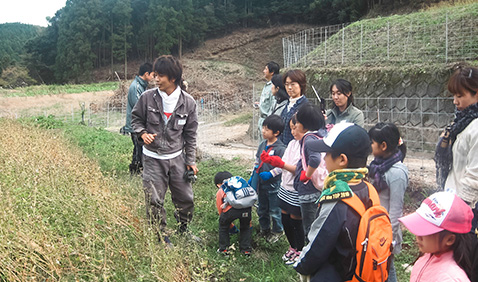
Consultants accompanied the organization for three years
The members and supporters also shared their ideas
Although the Terra People Association had become financially stable, the unifying force of the organization weakened after the death of its founder in 2008. Looking back on that time, Fujise explains that, "At the peak, there had been 1,000 members, but the number of members decreased year by year and also their average age increased. We somehow managed to operate a council system despite this, but it became clear that there was a gap between the new initiatives the secretariat wanted to pursue and the way the board of directors had done things up until that point, and it became difficult to see the future direction."
To address this, the Terra People Association applied for the "NPO/NGO Support Fund for SDGs" and had consultants get involved to conduct an organizational assessment. “As a result of interviews with almost all the directors and staff, it became clear that although the association had been aiming to be a ‘problem-solving’ organization, in reality it had been a "value-creating" organization that proposes and provides new value to society,” she said.
Furthermore, other issues that became apparent were that "board members are growing old and lack expertise" and "the secretariat cannot achieve what it wants to do," so three task force teams combining members from both the board of directors and the secretariat were formed to deepen dialogue on "the creation of a new organization for the board of directors," "the development of new projects," and "the creation of a mechanism for evaluation."
In the second year, a “medium-term plan” was formulated to clarify what the organization is aiming for and what achievements could be used to say that it is getting closer to its goal. "System coaching" was conducted for the board of directors and the secretariat as a whole. This was held in the form of workshops to draw out the true feelings that people could not normally express.
In addition, a mechanism called the "Terra People Challenge Support Project" was created so that not only the directors and staff, but also members and supporters could share and brush up the ideas that they wanted to realize. “This mechanism led to the provision of scholarships in Tonga, which had been damaged by a large-scale eruption of an undersea volcano, and to a new project selling coffee from Myanmar in Japan.”
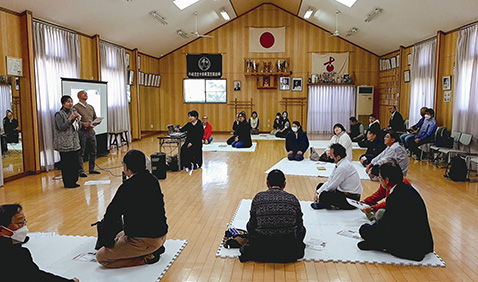
Repeated dialogue across generations and throughout the organization
Event planning on the scale of several hundred people
In the third year, a "Terra People Questionnaire" was conducted in order to reconnect with people who had previously been involved with the organization. "Terra People Dialogue" events were held in three locations nationwide and online as a forum to share the results of the questionnaire and to listen to any opinions and wishes. “Part of the aim of this was to revive the branches that at peak times had been located throughout the country, and the Dialogue did provide a trigger for the restarting of the Gifu branch, which had been in a dormant state.”
During that time, a "Terra People Conference" was held to commemorate the 40th anniversary of the Association. This turned out to be a grand reunion, with the participation of more than 100 old and new supporters. The "Terra People Challenge Support Project" also newly established a "Crowdfunding Support Program" to support crowdfunding, so this helped create an atmosphere that makes it easier for members to achieve what they want to achieve.
Mr. Iwanaga reflected that, "As the middle management staff at the helm of the organization, we were given ‘leadership development coaching’ by a consultant. This enabled us to delve into ourselves, from our personal histories to our life plans. Throughout the three years, we realized that we had the power to change the situation of the organization by taking action ourselves, and we became prepared to take on the responsibility of the association. By becoming able to talk not only about superficial project matters, but also about deeper matters, we were able to get to know the heart and soul of the other person. The involvement of the third party also made it possible to spend time working on the organizational development, which had tended to take a back seat as we prioritized the projects."
"We also established a 'Terra People Expansion Committee' to increase membership, and appointed a dedicated director. They go around the country and organize events that the secretariat alone could never handle, such as events on the scale of 100 people."
Finally, Ms. Fujise explains how the efforts during these three years have opened up new avenues. "Our organization didn't have a culture of dialogue between the board and the secretariat, so having the two consultants come in meant that they could sometimes speak on our behalf. They said the things we were unable to say, so we really appreciated them. Also, when the issues became too heavy for us to handle and we ran out of energy, they reorganized the issues for us and thought hard about what would be possible. Our biggest issue was how to achieve generational integration, where the philosophy could be passed on from the current directors to new, younger directors, while also improving the performance of the association. However, in February this year, we proposed a new organization based on the concept of generational integration to the board of directors in a way that conveyed the wishes of the secretariat, and we were able to obtain broad agreement."
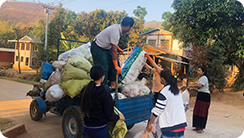
(Organization profile)
NPO Terra People Association
An organization working to contribute to world peace through the Earth Citizen Movement, by conducting international cooperation projects in Thailand, Sri Lanka, Myanmar, and Tonga, international exchange projects with South Korea and China, working to create a place for children, and conducting projects to promote the SDGs and multicultural coexistence, disaster relief, and lectures.

